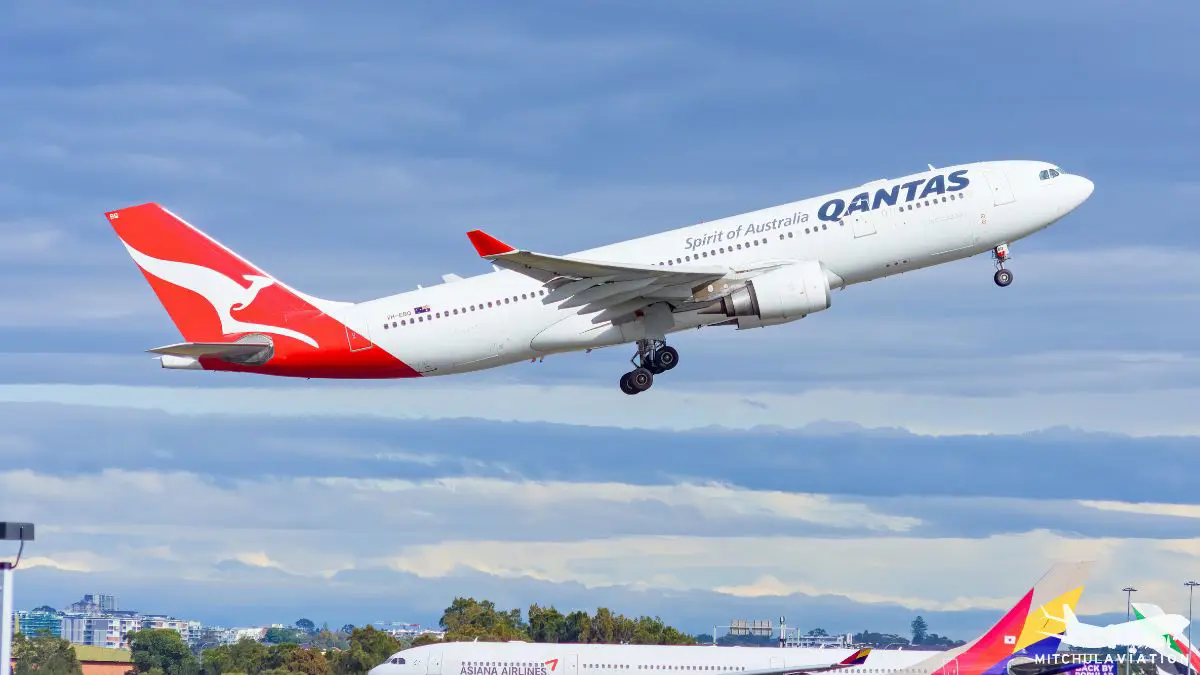Qantas faces major data breach: 6 million customer records exposed
By Cygnus | 02 Jul 2025

Australia’s flag‑carrier is dealing with its largest cybersecurity incident in years after an attacker accessed a third‑party customer‑service platform tied to one of its call centres. The database held roughly six million customer records—including names, email and postal addresses, phone numbers, dates of birth and Qantas Frequent Flyer numbers—according to a company statement on Wednesday.
Qantas says the breach was contained quickly once “unusual activity” was detected, and stresses that flight operations and safety were never at risk. An internal review is under way to determine exactly how much information was taken, though the airline admits the final figure is “likely to be significant.” Passwords, PINs and log‑in credentials for frequent‑flyer accounts were not compromised.
While Qantas did not attribute the attack to a specific group, the incident comes days after the FBI warned that the cyber‑crime syndicate known as “Scattered Spider” has been targeting airlines—breaches at Hawaiian Airlines and Canada’s WestJet were disclosed last week. Security analysts note that the group often masquerades as IT staff to harvest employee passwords, making major service providers especially vulnerable.
A fresh blow to Qantas’s turnaround plan
The timing could hardly be worse for Qantas. The carrier is still rebuilding its reputation after pandemic‑era controversies—from mass layoffs during the 2020 border closures to a scandal over selling tickets on flights that had already been cancelled. Although chief executive Vanessa Hudson, who took the helm in 2023, has won plaudits for stabilising the brand, the breach could reignite public criticism and weigh on customer sentiment. Investors reacted swiftly: Qantas shares slid 2.4 per cent on Wednesday afternoon, even as the broader ASX 200 drifted higher.
For Australia, the incident echoes the high‑profile hacks that struck Optus and Medibank in 2022, prompting stricter reporting rules and renewed debate over national cyber‑resilience. Regulators including the Australian Cyber Security Centre, the Office of the Australian Information Commissioner and the Australian Federal Police have been notified and are assessing next steps. Legal exposure and potential remediation costs could add to the airline’s financial headwinds just as international travel demand is rebounding.
Business implications
- Consumer trust risk: Any erosion of loyalty in Qantas’s frequent‑flyer programme could divert high‑value travellers to rivals, pressuring margins.
- Compliance costs: Tougher disclosure and data‑protection rules raise the stakes for breach response, adding potential fines and remediation expenses.
- Sector‑wide alert: Airlines globally may tighten third‑party vendor controls and employee credential policies, increasing cybersecurity budgets at a time of razor‑thin margins.
Quick take
A major data breach has exposed the personal details of around six million Qantas customers, dealing a fresh reputational blow to the carrier and underscoring the aviation sector’s growing cyber‑risk. While flight safety is unaffected, regulators are on alert and investors are already marking down the stock. How Qantas manages customer trust—and rising compliance costs—will be critical to its post‑pandemic recovery.
Frequently Asked Questions (FAQs)
1. What personal data was exposed in the Qantas cyberattack?
The breach involved names, email addresses, phone numbers, birth dates, and Qantas Frequent Flyer numbers. However, no passwords, PINs, or login credentials were compromised, according to Qantas.
2. How many customers were affected by the Qantas data breach?
Qantas estimates that the personal details of approximately six million customers were accessed. The airline is still investigating the exact scale of the breach.
3. Was flight safety or operations impacted by the cyberattack?
No. Qantas has confirmed that the breach did not affect aircraft operations, flight safety, or internal systems critical to running airline services.
4. Who is suspected of carrying out the Qantas hack?
While Qantas has not named the group responsible, cybersecurity experts warn that the breach may be linked to the hacker collective known as Scattered Spider, which the FBI says is targeting global airlines.
5. How did the hackers gain access to the data?
The attackers infiltrated a third-party customer service platform via a Qantas call centre. This platform stored customer records used in service interactions.
6. What steps has Qantas taken following the breach?
Qantas says it took immediate steps to isolate the affected systems, is working with cybersecurity experts to investigate the incident, and has informed relevant authorities including:
- The Australian Cyber Security Centre (ACSC)
- The Office of the Australian Information Commissioner (OAIC)
- The Australian Federal Police (AFP)
7. What should Qantas customers do now?
Qantas advises customers to be cautious of phishing emails or phone calls and to avoid sharing personal or financial information unless they are sure of the source. The airline is expected to contact affected individuals directly.
8. Will this breach affect Frequent Flyer points or accounts?
No. Qantas has confirmed that Frequent Flyer accounts were not accessed and remain secure. However, customers should monitor account activity and report anything suspicious.
9. Has Qantas faced other major controversies recently?
Yes. Qantas has been under scrutiny in recent years for:
- Illegally sacking thousands of ground staff during COVID-19
- Selling tickets on already-cancelled flights
- Allegedly lobbying against Qatar Airways’ expansion in Australia
These issues have eroded public trust, making the breach even more damaging reputationally.
10. Could Qantas face penalties or lawsuits over the breach?
Possibly. Under Australia’s strengthened cybersecurity and privacy regulations, Qantas may face investigations, compliance scrutiny, or legal action depending on how it handled customer data and its response to the breach.



















